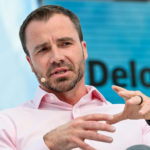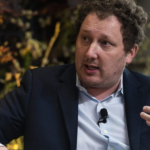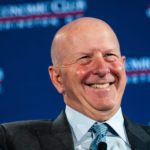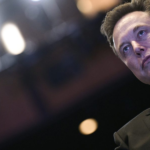But Smith had started getting antsy around 2016, as he was approaching three decades at the company, Axon compensation committee chair Hadi Partovi told Fortune. Smith was talking more seriously to the board about his succession plan, who was next to lead the company, and what he would do next. Partovi knew Smith could make a lot more money if he launched a startup than if he made Axon worth 10 times as much under his previous comp plan.
“This is when I realized we had a real problem,” said Partovi.
“It should be difficult to get these awards,” said Hoffmann. “You have to create a lot of value in order to earn these kinds of awards.”
“This way of wealth building is different than what was used during the dotcom era,” he noted.
“Human beings are terrible machines,” Sirras told Fortune. “They’re emotional. Their attention gets divided thinking about what airplane they’re going to buy. It’s more risky to invest in a human being than it is to invest in a machine because human beings break in different and unpredictable ways.”
Farient has gotten queries from compensation committee chairs who are already preparing for how they will address the situation when the CEO comes to them about a moonshot plan. In one case, the CEO isn’t a founder but a manager hired to run the company, Hoffmann noted. He isn’t a fan of moonshot awards, particularly in cases where CEOs already hold significant ownership stakes and control over their companies.
“From a firm perspective, it is our view that these plans are generally not in the best interests of the organizations, the stakeholders, and shareholders in these companies,” said Hoffmann. “To me, a lot of these feel like a lottery ticket, a winner-take-all.”
“From a design perspective, the magnitude is mind-boggling,” said Sirras. He compared it to the Jurassic Park film series. “Danger increases exponentially the closer these awards get to the general executive population,” Sirras wrote in an email. Alongside moonshots for founder-anointed successors and non-successors with a major capital investment he deems “inside the T. rex fence,” the rise of “awards in non-founder companies means the dinosaurs have escaped and are heading to the mainland,” Sirras wrote.
The awards can also prompt investors to revolt. Business payments company Corpay awarded CEO Ronald Clarke 850,000 performance-based stock options valued at $55.6 million in 2021. The award had stock price hurdles of $350 and $400 and Clarke got no long-term equity grants in 2020, 2022, and 2023. In 2024, the comp committee canceled 300,000 stock options subject to the $400 hurdle and modified the criterion for 550,000 stock options subject to the $350 hurdle to require that Corpay hit a closing stock price at or above $350 for at least three trading days by the end of 2024. Clarke achieved the modified hurdle on Oct. 23, 2024. Corpay told investors the change was meant to “align Mr. Clarke’s realized pay with that of shareholders who benefited from the increased stock level over $350 before the modification, but prior to the modification the stock had not closed above $350 for 10 consecutive days, which was the pre-modification hurdle.” In other words, the board made it simpler for Clarke to earn the stock options by reducing the target from 10 consecutive trading days above $350 to just three trading days, a hurdle he cleared shortly after the change.
Corpay did not respond to a request for comment.
“I really think that was a driver behind why the company grew so fast,” said Partovi. “Any element of infighting was gone—everybody was suddenly like, ‘We’re all in this together.’”
Smith’s 2023 award went through a significant negotiation process where Partovi heard directly from shareholders about everything they didn’t like about the first plan so he could debug it. The board also attempted to legal-proof it against the type of challenge that Musk’s moonshot faced, prompting one of the compensation committee members who had socialized with Smith to resign from the committee. The board also changed the vehicle type from performance options to restricted stock, added in speed brakes that would keep Smith at Axon, and made it more difficult for Smith to hit the last few tranches. Partovi said he addressed every question from shareholders about misalignment in the plan during the board’s negotiation process with Smith.
Ultimately, Partovi credits the moonshot deal with transforming the corporate culture around shared risk and high reward with a version of a high-stakes compensation plan rolled out to everyone at the company. In his view, it helped to eliminate dynamics where direct reports and general employees resent outsize pay for the chief executive, he said.
“The big thing is, the CEO is taking a risk in giving up his pay, and you don’t want it to turn out to be shareholders win and the CEO wins or shareholders lose and the CEO still wins,” said Partovi. “I don’t know if grants like Rick’s make sense for everybody, but they strongly make sense for Rick Smith at Axon.”









